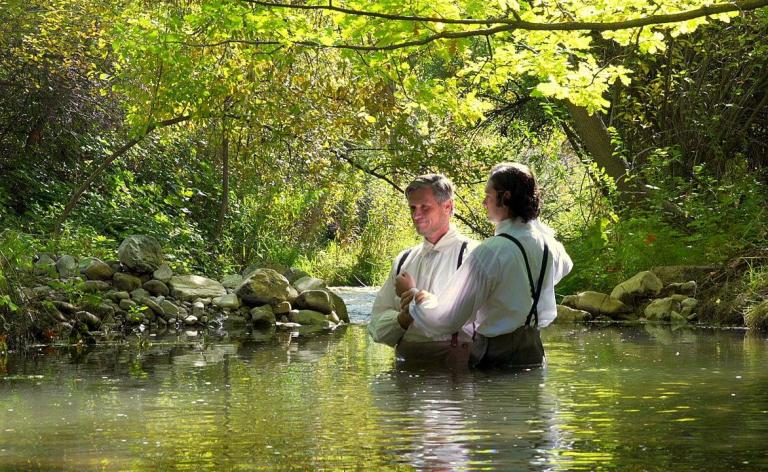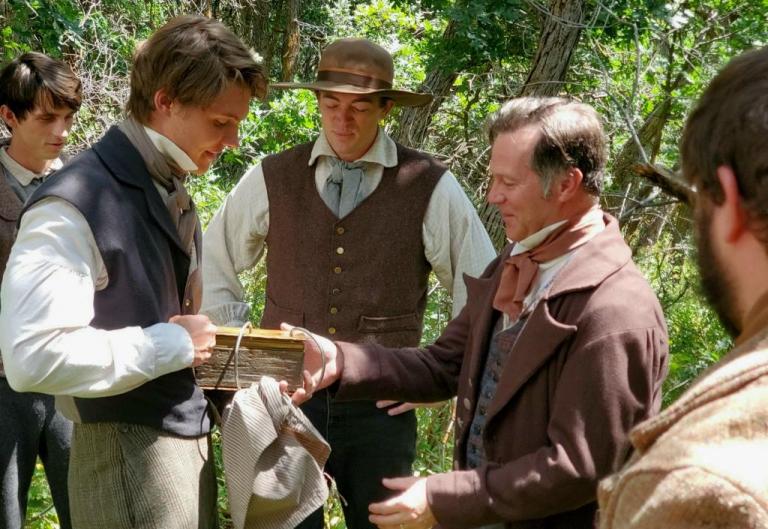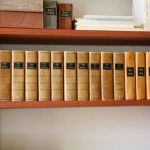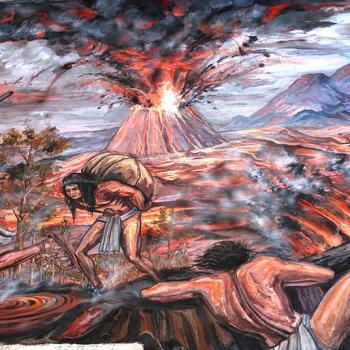
It’s the Sabbath, so I won’t be hounding you to go see Six Days in August today. In fact, I hope that you don’t go today. Go twice tomorrow, instead. Go every day next week. Take friends. Take family. Buy tickets for your children and grandchildren who live far away from you.
Now, having encouraged you not to attend a showing of Six Days in August on the Sabbath . . . Since our 2021 film Witnesses is temporarily available for free, today is a really good and appropriate day to watch that. Go to the official Six Days in August website and find out how to gain access to the Interpreter Foundation’s 2021 film about the Three Witnesses of the Book of Mormon.
In connection with the making of Witnesses and at my request, Professors Thomas G. Alexander, James B. Allen (d. 2 September 2024), Richard Lloyd Anderson (12 August 2018), and Richard L. Bushman provided the following endorsements of the importance of th0se Book of Mormon witnesses:
Imagine the publication and distribution of the Book of Mormon without the testimony of the witnesses. If there were none, Joseph Smith would have had to reply on his own word that he translated the plates. Many, perhaps most, people would probably have rejected the word of an uneducated farm boy. Joseph had enough difficulty even with the witnesses convincing others of the truthfulness of his story. Other people including the eight witnesses saw the plates, but only the three witnesses saw them in the possession of the heavenly messenger who delivered them to Joseph. The Lord asked them to testify to the truthfulness of Joseph’s ministry, which they did. Most important, during their lifetimes all three witnesses left the church. Oliver Cowdery and Martin Harris returned to the fold, but David Whitmer remained in Richmond, Missouri, estranged from Mormonism throughout the remainder of his life. Nevertheless, in spite of rumors to the contrary, all three continued to insist on the truth of their witness.
- Thomas G. Alexander, Ph.D. [University of California at Berkeley), Lemuel Hardison Redd, Jr., Professor Emeritus of Western History, Brigham Young University; former president of the Mormon History Association
The testimonies of the three witnesses is the closest we come to rational evidence for Mormon belief. Three men attest to a sensory encounter with the gold plates and a divine being. In an age of skepticism, when all religious belief is under attack, their statement becomes more relevant every day.
- Richard L. Bushman, Ph.D. [Harvard University], Gouverneur Morris Professor of History Emeritus at Columbia University; former Howard W. Hunter Visiting Professor in Mormon Studies at Claremont Graduate University; former president of the Mormon History Association
The testimonies of the witnesses to the Book of Mormon make Joseph Smith’s account much harder to dismiss than it would otherwise be. Plainly, since others announced that they, too, had seen and “hefted” and heard, this means that, whatever else it was, Joseph’s account must reflect more than merely private imagination or simple personal dishonesty. If the witnesses are judged to be reliable men of good character, their declarations pose a serious challenge to anyone who considers the claims of the Restoration.
- James B. Allen, Ph.D. [University of Southern California], Lemuel Hardison Redd Jr. Professor Emeritus of Western History, Brigham Young University; former Assistant Church Historian, the Church of Jesus Christ of Latter-day Saints; former president of the Mormon History Association
Thousands of authorized copies of the Book of Mormon have reprinted the signed experience of the eleven Book or Mormon witnesses, Three who described that an angel held and turned the individual plates of an ancient New World Bible and Eight who narrated how they were given an ordinary experience of “hefting” the record and examining the carefully crafted characters on it. About 200 reported interviews with these eleven are collected, which report the constant affirmation of these witnesses of seeing and lifting this historic, prophetic record, with its independent account of Christ visiting America.
- Richard Lloyd Anderson, J.D. [Harvard University], Ph.D. [University of California at Berkeley], Professor Emeritus of Church History and Doctrine, Brigham Young University

And, while I’m on the subject of the Book of Mormon witnesses: I came across an argument against them the other day, and against the Book of Mormon itself — and, really, against me — that I would like to share with you and on which I want to briefly comment:
1. Eyewitness testimony, says the critic (whom we’ll call Bucky), is notoriously unreliable. 2. But, says Bucky, the buffoonish Dan Peterson claims that the best evidence for the Book of Mormon is eyewitness testimony, therefore, according to Peterson, 3.the best evidence for the Book of Mormon is a kind of evidence that is notoriously unreliable.
I get a kick out of this sort of argument against the credibility of the Book of Mormon witnesses, which seems to me transparently selective and self-serving. Imagine how most people would react to a trial in which eleven eyewitnesses testify that they plainly saw Frank repeatedly and fatally stab Charlie.
At trial, Frank’s defense attorney stands and, scarcely able to conceal his haughty contempt for the prosecution’s case, declares to the jury that
“1. Eyewitness testimony is notoriously unreliable. 2. According to the State, though, the best evidence for Frank’s guilt is — brace yourselves and try not to laugh! — eyewitness testimony. Therefore, by the prosecution’s own admission, 3. the best and most convincing evidence that Frank murdered Charlie’s is a kind of ‘evidence’ that is notoriously unreliable.”
Or, alternatively, imagine Bucky himself filing a complaint with the police. Arnold, says Bucky, systematically demolished Bucky’s car with a sledgehammer.
“How do you know that it was Arnold who did it”? asks the police officer.
“Because I saw him do it,” responds Bucky. “With my own eyes.”
“But,” the police officer returns, “do you have any corroborating evidence?”
“Yes! I certainly do!” replies Bucky. “Eleven of my neighbors stood on their lawns and on the sidewalk and watched him do it!”
“Is that really all you’ve got?” says the officer, with obvious irritation. “Eyewitness testimony is notoriously unreliable. And yet, according to you yourself the best evidence that Arnold was the one who smashed your car with a sledgehammer is, of all things, eyewitness testimony! Accordingly, from your very own mouth, the strongest evidence that Arnold destroyed your car is no more than a kind of ‘evidence’ that is famously unreliable. Stop wasting my time. You’re lucky I don’t arrest you for filing a false report. Come back when (and if) you ever have anything that I can take seriously!”












